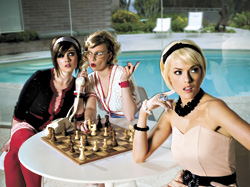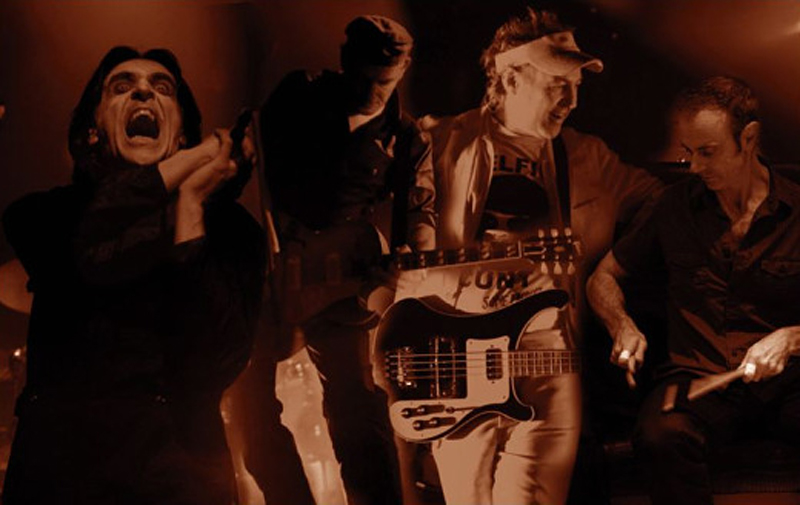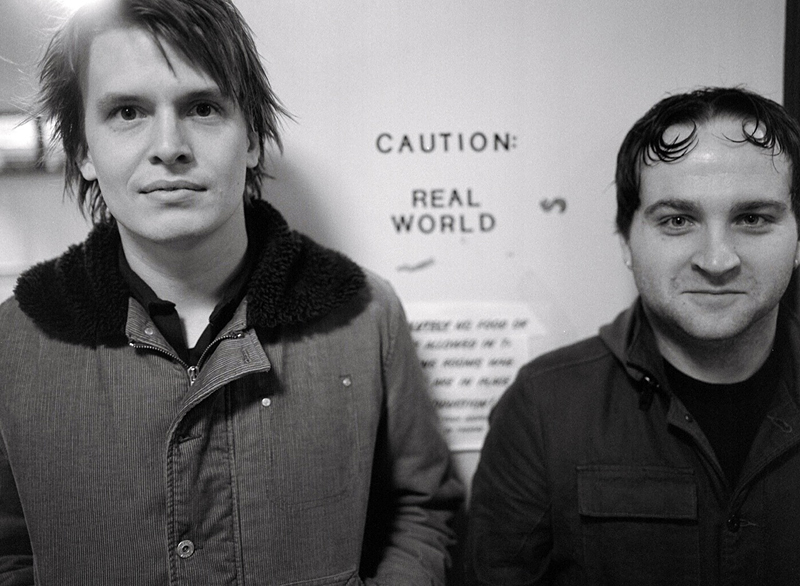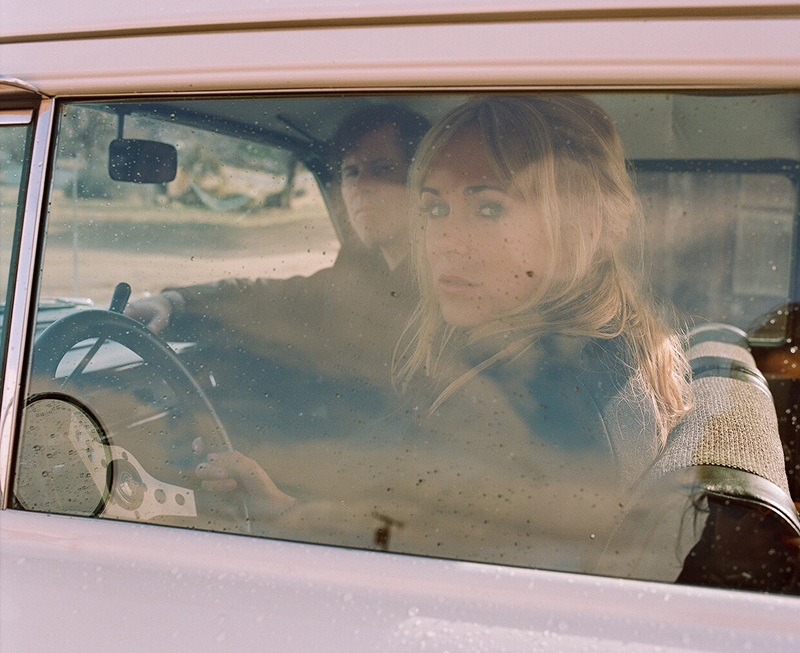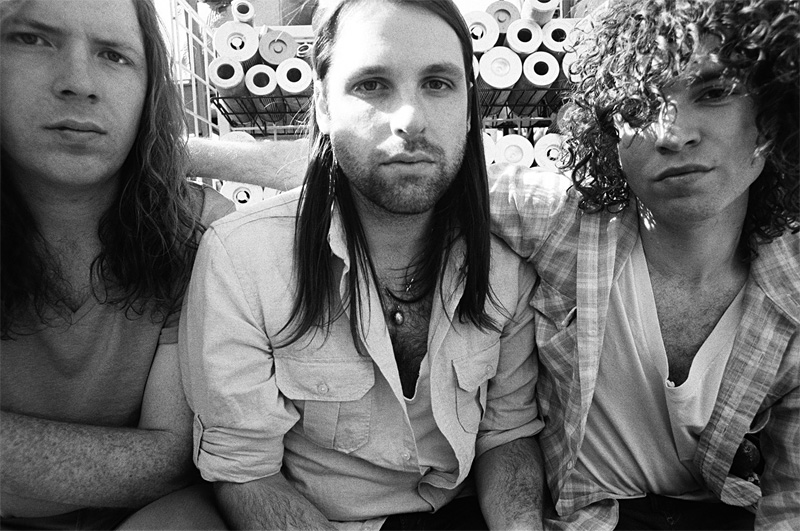What if all of those girl groups had never stopped, and what if the Beatles had never existed . . . what would it be like now? says Pipettes co-frontwoman Rose Dougall (aka Rosay Pipette).
The girl groups she’s referring to are the Shangri-Las, the Ronettes, the Supremes, and the Shirelles. These are classic pop acts rooted in R&B, soul, and doo-wop traditions that the Pipettes’ founders, Bobby “Monster Bobby” Barry (also the group’s guitarist) and now-departed singer Julia Clark-Lowes, felt were due for a modernized update.
The Pipettes—a seven-piece outfit fronted by a trio of fetching female singers who don polka-dot dresses and perform choreographed dance moves—formed in 2003 by imagining the past four decades or so of rock ‘n’ roll history occurring quite differently.
After recruiting Rosay, Rebecca Stephens (aka Becki Pipette), and three guys who would join Monster Bobby in the all-male backing section dubbed the Cassettes (and later Gwenno Saunders, who replaced Julia Pipette in 2005), the septet began cranking out a string of campy singles indebted to the sounds of those aforementioned groups, as well as the recording techniques of producers Phil Spector and Joe Meek. The songs are dense, reverb-heavy, insanely catchy compositions merging punchy strings and horns with rockabilly/surf guitars, piano plinks, organs, and, of course, all those heavenly, girlish vocal melodies and “oooooh sha la la la” harmonies.
On the Pipettes’ 2006 full-length U.K. debut, We Are the Pipettes—slated for U.S. release in August—there are nods to other eras as well. Vocally, there are echoes of Bananarama and even the Spice Girls (their cheerleader chants also fall somewhere between Toni Basil and riot grrrl), and the song “Dirty Minds” crosses Maxine Nightingale’s “Right Back Where We Started From” with the B-52’s “Roam.”
Lyrically, the Pipettes typically steer clear of the submissive approach associated with the original girl groups, frequently opting for bawdy sentiments and righteous kiss-offs: “I don’t love you, I don’t need you/If you think that this is cruel/Then you should see what my friends do,” the trio gleefully sneers in “One Night Stand.”
“We’re definitely not interested in being some pastiche of the girl groups from the ’50s and ’60s,” Rosay states. “We’re just using those ideas as a springboard, and to do something different, you know, as opposed to this sort of standardized rock ‘n’ roll canon that everyone is born knowing, and this unquestionable reverence you have to have for all of these bands.”
To that end, the group has promulgated an attention-grabbing manifesto, boldly stating that the Beatles “ruined everything,” and that the Rolling Stones and the Who created, as Becki lamented to a British paper, a “hegemony of cock rock”: a world where guys with guitars ultimately rule, and where pop music has been considered “disposable.” Many have applauded their stance, but naturally, ripping the Beatles is enough to make your average critic foam at the mouth.
“It was almost like we were blasphemers or something!” Rosay laughs. “I mean, it’s not even the Beatles’ music that bothers me. It’s more about what happened afterward that’s the problem.”
Seizing on their image and stage presence to dismiss them as manufactured pop, some detractors have taken things even further, suggesting that the Pipettes’ approach actually sets women back by romanticizing an era in which men, they claim, were firmly in control.
“I was quite naive to think that these sort of authenticity and gender things wouldn’t really be an issue,” Rosay admits. “Like, we don’t play any instruments onstage, and that’s supposed to be ‘disempowering’ and it ‘isn’t a valid way of being in a band.’ But surely we’re at a point now where women can be onstage and perform and express themselves as they choose.
“This is a very careful thing that we’ve chosen to do,” she continues. “Nobody told us to do anything—we did it; we came up with it. I mean, we’re very aware that we’re female musicians in a male-dominated industry, and we make sure we do things the way we want to. But we’re not overtly feminist in our outlook, and we don’t want that to be the prime focus of the Pipettes. We always wanted to create a show for people to just have fun and lose themselves for an hour or whatever. People are slightly more keen to dance and just enjoy it now, thank goodness.”
